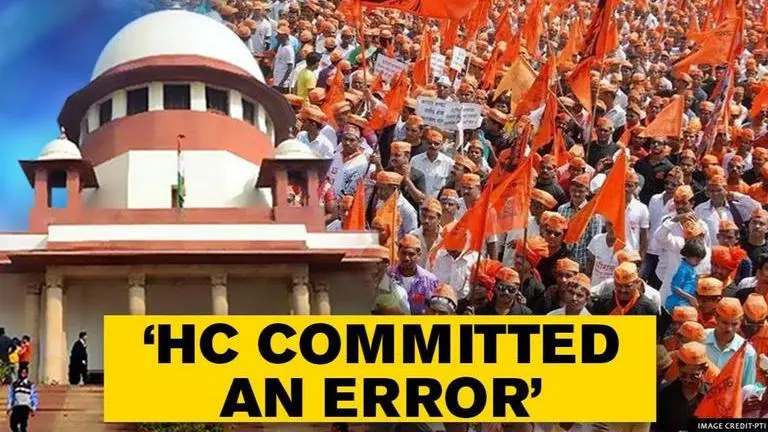Updated 10 September 2020 at 22:58 IST
Stay on reservation: 'Marathas cannot be compared to marginalized sections', observes SC
The Supreme Court has prima facie held that the Maharashtra government has not shown any "extraordinary situation" for providing reservation to the Marathas.
- India News
- 3 min read

In a significant development, the Supreme Court has prima facie held that the Maharashtra government has not shown any "extraordinary situation" for providing reservation to the Marathas. In its order delivered on September 9, the apex court bench comprising Justices L Nageswara Rao, Hemant Gupta and S Ravindra Bhat directed a stay on the Maratha reservation in public employment and educational institutions. The appeals against the Bombay High Court's verdict upholding the constitutional validity of the Socially and Educationally Backward Classes Act, 2018 have been referred to a larger bench.
In the SEBC Act which came into force on November 30, 2018, the Maratha community has been declared as a 'Socially and Educational Backward Class'. The Bombay HC judgment reduced the quantum of Maratha reservation to 12% in educational institutions and 13% in public employment. Maintaining that the 50% reservation ceiling could be relaxed only in extraordinary situations, it added that the Maratha community comprising 30% of Maharashtra's population could not be compared to the marginalized sections of society living in remote areas of the state.
In paragraph 15, the SC noted, "It was made clear that extreme caution has to be exercised and a special case made out for relaxation of the rule of 50 per cent. Applying the law laid down by this Court in Indra Sawhney (supra), we are of the prima facie opinion that the State of Maharashtra has not shown any extraordinary situation for providing reservations to Marathas in excess of 50 per cent. Maratha community which comprises of 30 per cent of the population in the State of Maharashtra cannot be compared to marginalized sections of the society living in far flung and remote areas."
'Not exceptional circumstances'
Moreover, the SC prima facie observed that the Bombay High Court had committed an error in treating certain circumstances as "extraordinary", justifying the relaxation of the reservation ceiling. The bench also said that the implementation of the SEBC Act for admissions and appointments during the pendency of the appeals will cause "irreparable loss" to the candidates belonging to the open category. In view of this, it ruled that admission to educational institutions for the academic year 2020-21 and appointments to posts under the government will be made without references to the reservations provided in the Act.
Advertisement
"The social, educational and economic backwardness of a community, existence of quantifiable data relating to inadequacy of representation of the community in public services and deprivation of the benefits flowing from reservations to the community are not exceptional circumstances for providing reservations in excess of 50 per cent. We are of the prima facie opinion that the High Court committed an error in treating the above factors as circumstances which are extraordinary, warranting relaxation of the strict rule of 50 per cent," the apex court stated in paragraph 16.
Published By : Akhil Oka
Published On: 10 September 2020 at 22:58 IST
